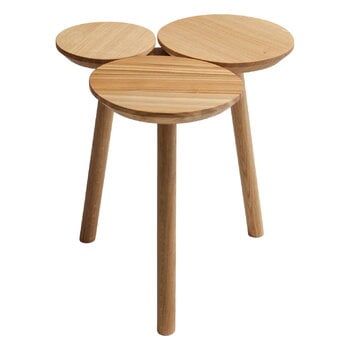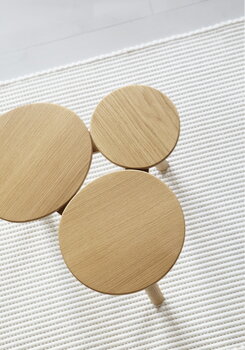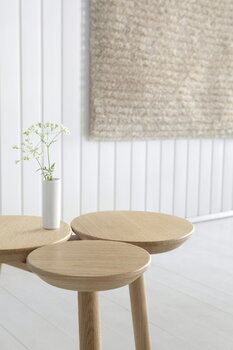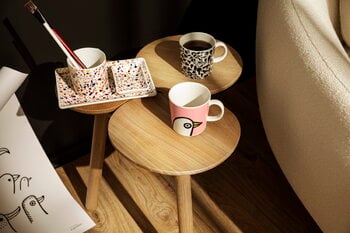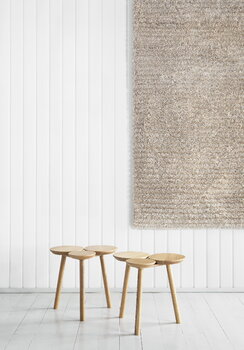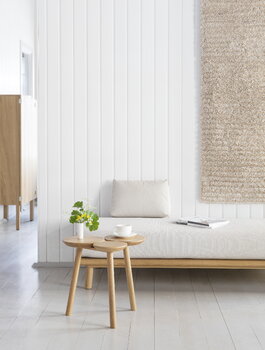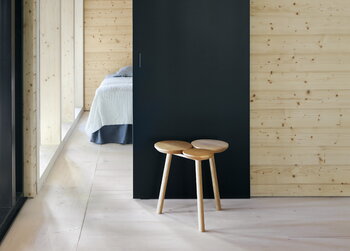Nikari's July stool was designed by Nao Tamura. The three round elements of its seat are different not only in size but also in texture and hue – together they create an interesting ensemble that celebrates the beauty of individuality. July also functions as a modern side table.
In 2012, Nikari asked twelve designers or design studios to give their response to Nikari’s design philosophy in the form of a product. The project was called Project 2012 Designs for Nature: Nikari co-operates with the Finnish WWF and part of the sales price is donated to protecting rainforests and forests globally.
Nikari products are made in Finland using only certified wood.
